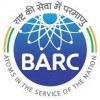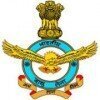Filter interviews by
Defence Research & Development Organisation Junior Researcher Interview Questions and Answers
Defence Research & Development Organisation Junior Researcher Interview Experiences
1 interview found
(5 Questions)
- Q1. Basics of thermodynamics like entropy of universe, Basics of SOM, Mechanics etc
- Q2. Past company experience
- Q3. Modelling related
- Q4. Future plans after jrf
- Ans.
I plan to pursue a PhD in my field of research and eventually work in academia or industry.
Continue research in my area of interest
Apply for PhD programs
Explore opportunities in academia or industry
Attend conferences and publish research papers
Network with professionals in the field
- Q5. Self introduction
Top trending discussions






Interview questions from similar companies

Research Scientist Interview Questions & Answers
Honeywell Technology Solutionsposted on 21 Dec 2024
(2 Questions)
- Q1. What is distillation?
- Q2. What is heat exchanger?
(2 Questions)
- Q1. What is your strength?
- Q2. Why Honeywell?

Research Scientist Interview Questions & Answers
Honeywell Technology Solutionsposted on 13 Oct 2023

(1 Question)
- Q1. Be Prepared on the Projects u have worked upon, dont sound too arrogant even if you know.
(1 Question)
- Q1. Normal Questions

Interview Questionnaire
3 Questions
- Q1. Which capacitors-store higher amount of energy?
- Ans.
Electrolytic capacitors store higher amount of energy.
Electrolytic capacitors have higher energy storage capacity compared to other types of capacitors.
They are commonly used in power supply circuits and audio amplifiers.
Examples of electrolytic capacitors include aluminum electrolytic capacitors and tantalum capacitors.
- Q2. Molecules are held together in crystal by
- Ans.
Molecules are held together in crystals by intermolecular forces.
Intermolecular forces, such as hydrogen bonding, electrostatic interactions, and van der Waals forces, hold molecules together in crystals.
These forces are responsible for the regular arrangement of molecules in a crystal lattice.
Examples of crystals held together by intermolecular forces include salt (sodium chloride) and quartz.
The strength and type of ...
- Q3. C-O bond length is minimum in
- Ans.
C-O bond length is minimum in carbonyl compounds.
Carbonyl compounds have a double bond between carbon and oxygen.
The C-O bond length is shorter in carbonyl compounds compared to other compounds.
Examples of carbonyl compounds include aldehydes, ketones, and carboxylic acids.

Research Scientist Interview Questions & Answers
Indian Space Research Organisationposted on 7 Apr 2017
I was interviewed in Aug 2017.
Interview Questionnaire
1 Question
- Q1. How and where you apply mathematics in your field if you are a maths student.
- Ans.
Mathematics is applied in various ways in the field of research science.
Mathematics is used to develop and analyze models and algorithms.
It is used in statistical analysis and data interpretation.
Mathematical equations and formulas are used to describe and predict phenomena.
Mathematical optimization techniques are applied to solve complex problems.
Mathematics is used in designing experiments and conducting simulations.
...
Interview Preparation Tips
Experience: I solve the question, it be how is hard i do my best.
Tips: No, because everyone have different thinking to solve, if the question would be any not even maths.
Duration: 1 hour 30 minutes
Total Questions: 100
Round: Technical Interview
Experience: We will know about our subject knowledge.
Skills: Creative Thinking
Defence Research & Development Organisation Interview FAQs
Tell us how to improve this page.
Defence Research & Development Organisation Interviews By Designations
- Defence Research & Development Organisation Junior Research Fellow Interview Questions
- Defence Research & Development Organisation Intern Interview Questions
- Defence Research & Development Organisation Research Intern Interview Questions
- Defence Research & Development Organisation Design Engineer Interview Questions
- Defence Research & Development Organisation Graduate Trainee Interview Questions
- Defence Research & Development Organisation Scientist Interview Questions
- Defence Research & Development Organisation Senior Research Fellow Interview Questions
- Defence Research & Development Organisation Ai Ml Engineer Interview Questions
- Show more
Interview Questions for Popular Designations
- Research Associate Interview Questions
- Researcher Interview Questions
- Senior Research Associate Interview Questions
- Research Scientist Interview Questions
- Clinical Research Coordinator Interview Questions
- Quantitative Researcher Interview Questions
- Data Researcher Interview Questions
- Senior Researcher Interview Questions
- Show more
Interview Questions from Similar Companies
Fast track your campus placements
Defence Research & Development Organisation Junior Researcher Reviews and Ratings
based on 1 review
Rating in categories
|
Design Engineer
180
salaries
| ₹1.5 L/yr - ₹5.4 L/yr |
|
Junior Research Fellow
133
salaries
| ₹3.5 L/yr - ₹6 L/yr |
|
Project Engineer
123
salaries
| ₹1.9 L/yr - ₹5.5 L/yr |
|
Senior Research Fellow
119
salaries
| ₹4 L/yr - ₹8 L/yr |
|
Contract Engineer
106
salaries
| ₹1.5 L/yr - ₹4.1 L/yr |

BARC

Indian Space Research Organisation

Bharat Electronics

Hindustan Aeronautics
- Home >
- Interviews >
- Defence Research & Development Organisation Interview Questions >
- Defence Research & Development Organisation Junior Researcher Interview Questions














